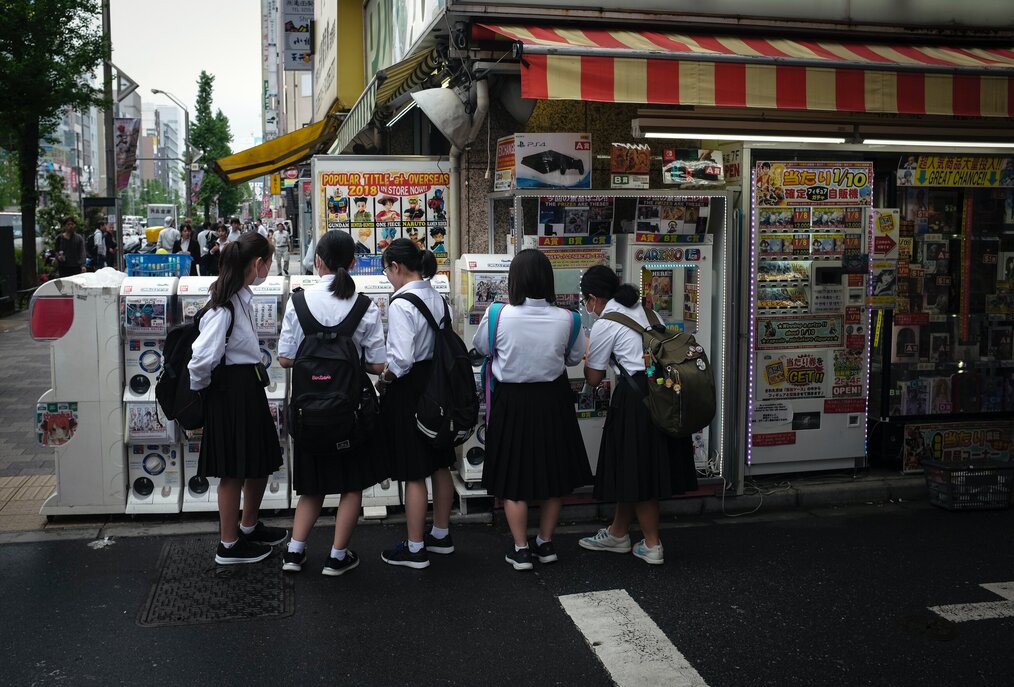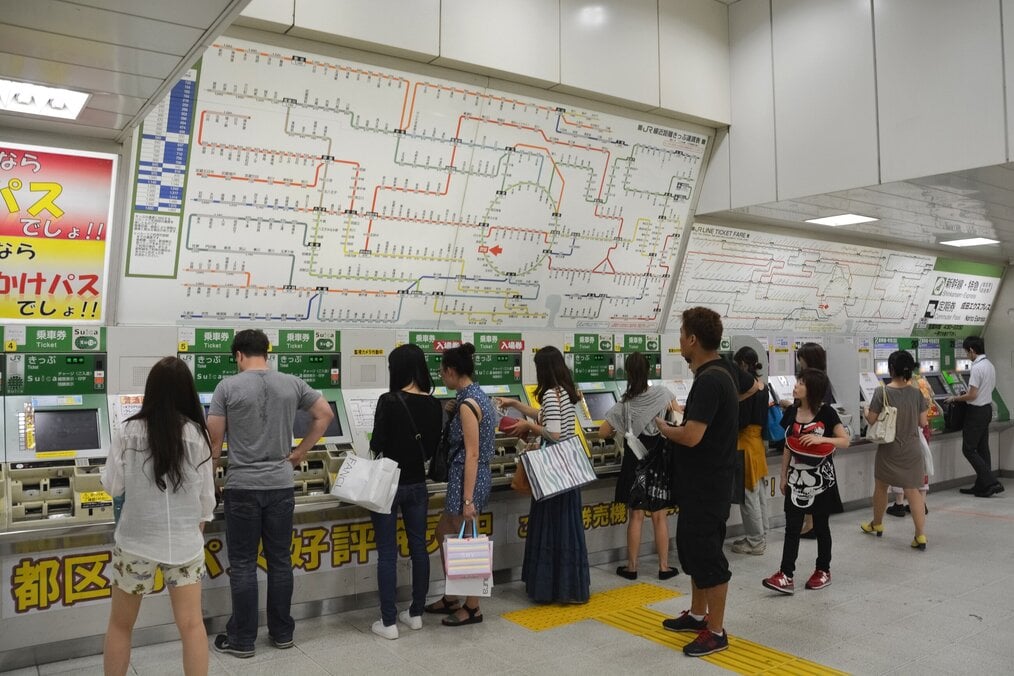The Pros and Cons of Teaching English in Japan
Japan is a great place to work for ESL teachers. If you're considering teaching in Japan, check out these pros and cons to help decide if this fascinating country is right for you.
Key Takeaways 🔑
- English teachers are both in demand and well-respected in Japan.
- Teachers in Japan enjoy excellent pay and benefits.
- Teaching in Japan presents unique challenges like long workdays and a work culture that may be different from what you're used to.
- Still not convinced? Check out what a day in the life of an ESL teacher in Japan looks like!
Teaching English in Japan can be one of the most rewarding experiences, should you choose to accept the challenge and go into it with an open mind and willingness to learn. It will demand that you celebrate the country’s beauty and uniqueness and embrace its imperfections. In doing so, you will learn a lot about Japanese culture, work environment, your students, and yourself in the process. You’ll also learn what it is to be both a teacher and a student.
Before taking the plunge, you will undoubtedly be filled with questions about this potentially life-changing experience. Let's start with some of the basics.
Are teachers respected in Japan?
Although China and South Korea rank first and sixth, respectively, in a global study of teacher status by the Varkey Foundation, Japan's score has improved since the 2013 survey. Of 21 countries included in the survey, Japan's ranking increased from 17th in 2013 to 11th in 2018.
However, the public's perception of the teaching profession doesn't mean your students won't respect you. The National Center on Education and the Economy reports that Japan has a long history of valuing education and respecting teachers. This emphasis on education shows -- Japan consistently outperforms the rest of the Organisation for Economic Co-operation and Development (OECD) countries in Math and Science.
Are teachers in demand in Japan?
English teachers in Japan are needed across K-12 settings, private language schools, and universities. On sites like Dave's ESL Cafe and Go Overseas job board you can find opportunities across a range of ages and settings.
Read more: How to Get a Job Teaching English in Japan
Is it difficult to become a teacher in Japan?
Compared to other countries frequented by English teachers, Japan has more rigorous requirements. A bachelor's degree is required and a TEFL certificate is preferred. In higher education, a master's may be mandatory. Some job listings may ask for 1 or more years of classroom teaching experience. In addition to the education and experience requirements, you'll also need to undergo criminal background checks as well as drug and health checks. Obtaining all of these documents can be a lengthy process and that has the potential to make becoming a teacher in Japan more complicated.
If you decide to do the popular Japan Exchange and Teaching (JET) program, you'll need at least a bachelor's degree in any subject. Be aware that the application process for JET is long and detailed. After submitting your initial documents between October and early December, successful applicants won't have their placement until July in the following year. The wait will be worth it!

Is it expensive to live in Japan?
Cost of living also varies across Japan and like in most places, whether you live in a major city or a small town will affect your monthly expenses. As a general guide, here is an idea of what it costs to live in Japan.
Average monthly living expenses
- Utilities (if not included in rent): $100-$350
- Groceries: $300-$450
- Cell phone plan: $15-$30
- Transportation pass: $50-$150
Source: Numbeo Japan
As you will learn in this article, Japan's pay and benefits make living here comfortable with opportunities to save some money on the side.
Pro: Good pay and great benefits
Although pay varies by setting, starting salaries usually fall somewhere between $20-30K a year. Even though it may not seem like a lot by US standards, if you live and work in outside of major citer centers (which you likely will) it's incredibly livable. In terms of growth, there isn't a corporate ladder to climb, but there are certainly opportunities for higher salaries and bonuses the longer you work for one company or school. On top of that, many jobs cover housing and may include other perks like transport passes, cell phone SIM cards, and free lunch at school. When you're not paying for accommodation, what seems like a humble salary will start to add up.
Read more: What Salary Will You Earn Teaching Abroad in Japan?
Con: Committing to long workdays
Depending on the kind of school environment you teach in, you may have to work long hours until 9-10 pm for students coming after a regular work or school day. This may limit you from creating a social life outside of work.
Furthermore, work isn’t always over when you leave the classroom. In Japanese culture, it’s common to go out with colleagues for a drink or karaoke. Not every night or week, but these outings help keep the harmony among the group. You may also be required to work some weekends and at school events.
Pro: Collaborative classroom environment

A really great perk of being a teacher in Japan is that, if you’re willing to listen and observe, your students will give you lesson ideas. By listening to conversations they have with each other, observing how they interact, and paying attention to what they write about in their assignments, you can incorporate their interests into lesson plans. Youth culture in Japan is unique and a perfect opportunity to pique your students' interest in talking about these trends in English.
This can save you time or even get the creative juices flowing when you’re stuck on ideas for creating lesson plans that will engage students, helping them learn and participate in a dynamic atmosphere. You may think you're there to inspire the students, but they will inspire you, too!
Read more: How to Create the Perfect ESL Lesson Plan
Con: A different work culture
Life as a teacher in Japan is just different, and that can take some time for you to adjust to. For example, after you’ve finished a lesson and you ask your students questions or for feedback on whether or not they understand what you’re teaching, they’ll often say that they do understand or that they don’t have questions.
However, in keeping with the idea of harmony and not disrupting their classmates’ learning experience, chances are they actually don’t understand the material you’ve covered, and they’ll save their questions for the end of class when they can ask you in private. This habit is also to save face so as not to appear unintelligent in front of their peers.
Keep this in mind while you’re teaching. It's important to engage as many students as possible in your lesson activities to gauge understanding and ensure that nobody gets left behind.
Pro: A meaningful cultural exchange
Though you’ve signed up to teach English, regardless of your experience, you are going to learn a lot about your own language through the questions that students ask you. Some will leave you stumped, and others will amaze you. It will encourage you to teach beyond what’s written in textbooks and delve into why we speak the way we do, why we change the way we talk depending on the context, etc.
In turn, students will learn about Japanese from the questions you ask them. You’ll also be able to pick up proper Japanese expressions from your colleagues and casual slang from your students. It’s a very unique exchange and provides insight on how to communicate effectively when there’s a robust language barrier in place. It will force you to get creative and learn how to simplify your own speech and expressions.
Con: Feeling isolated
At times, living and working in Japan can make you feel isolated and homesick. This is especially true if you don’t speak or understand Japanese and are living in a small rural town with few other teachers or expats around. This may mean that you won’t have anybody in the immediate vicinity or in your daily social circles to share your experiences with or get feedback on a regular basis.
Read more: Top Ways to Keep in Touch with Friends and Family While Overseas
Pro: Efficient transportation

Nearly every corner of Japan is accessible by train. The areas that aren’t are walkable or best explored by bicycle. From local trains to bullet trains, Japan has made it so easy to explore. It’s also a nation that depends on things running on time, which means you can usually expect to get to work in a timely fashion. Some schools may even reimburse transportation costs.
Con: Long commutes
If you’re working in the public school system, you may spend a lot of time on trains traveling between to 3-4 schools a day. Sometimes this can be 30-45 minutes just to teach for an hour at one school, or you may be assigned to teach at a different school every day.
Some will have a longer commute time from where you live, and while not unbearable, it can certainly be tiring. This is something to consider when picking where in Japan you want to teach, especially if you think you’ll end up wanting to live in Japan long term.
Pro: Simple, healthy, and delicious food

Many of the locals will assure you that Japan’s food is simple, healthy, and safe to eat. Japan’s loyalty to its craft, especially when it comes to food, is incomparable. People spend their whole lives dedicated to perfecting their specialty foods, trying to find the right balance of flavors and textures, or putting their own spin on it.
Soup broth isn’t too bitter, ramen isn’t too spicy unless requested, and many of their traditional or gourmet sweets are not overloaded with sugar. Just think of Japan as the Goldilocks of food meccas. Flavors don’t swing too much one way or another -- the flavors are just right.
Start your Japan adventure
Your quality of life and career longevity in Japan will depend on how much effort you put into your work, how much you enjoy it, and how well you communicate your concerns and needs. Working and living in a different country doesn't come without obstacles and frustrations, but once you learn to navigate the waters, it has the potential to be one of the most enriching experiences.
There is an expression in Japanese called Ganbatte, which is the equivalent of "do your best" or "you can do it." Should you choose to go teach English in Japan, ganbatte and enjoy!



